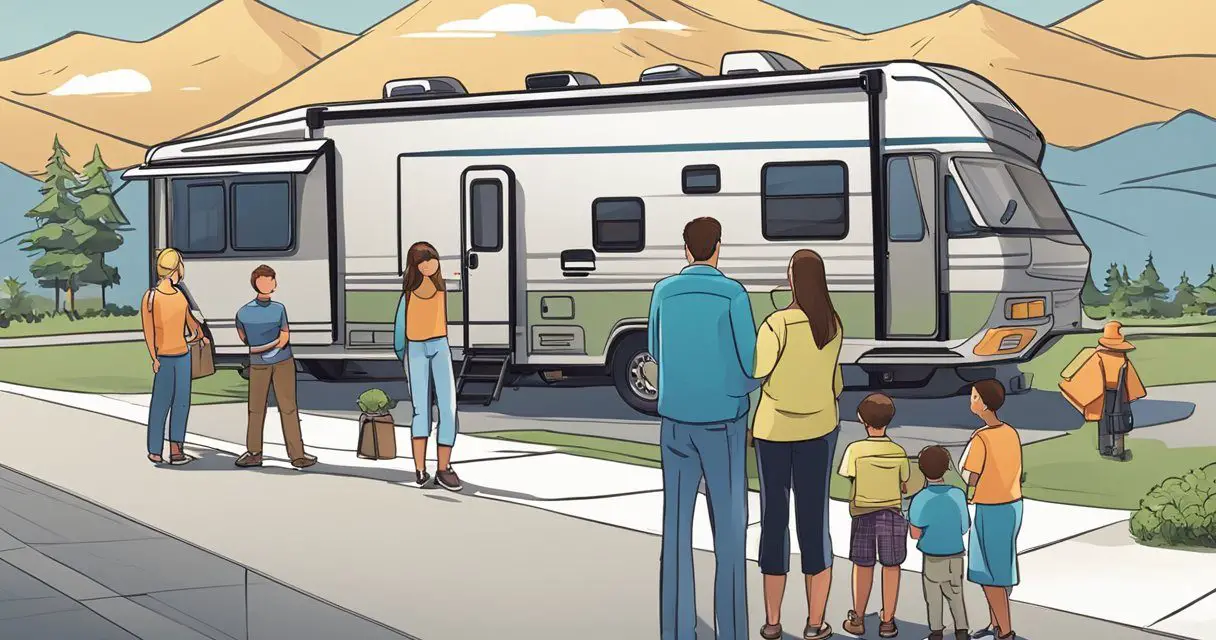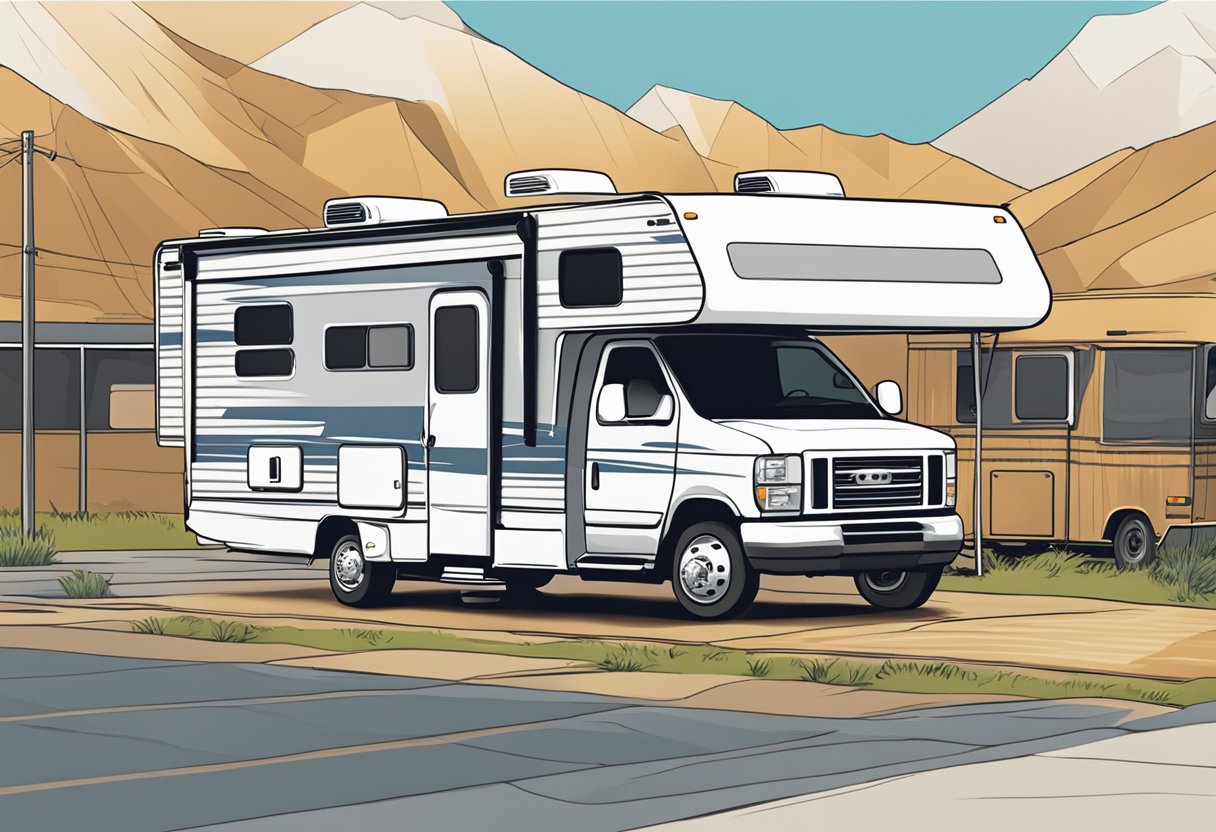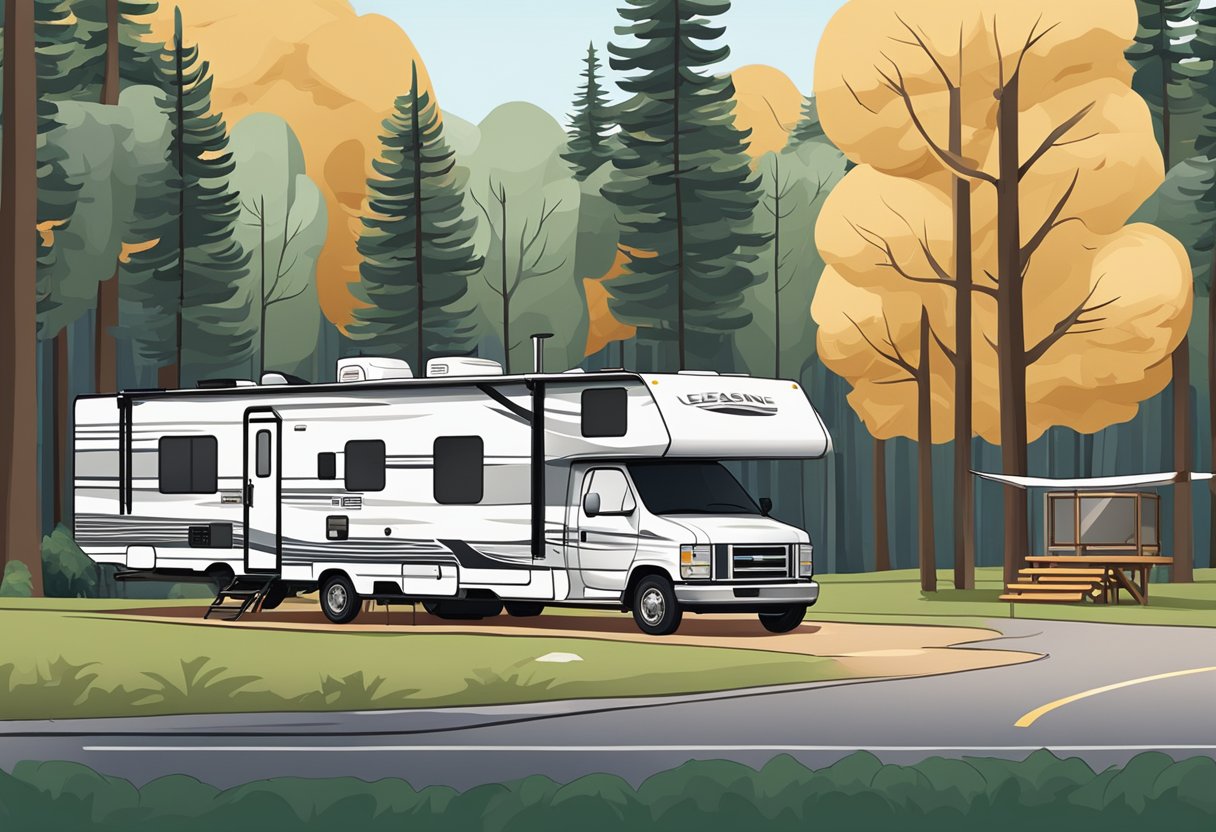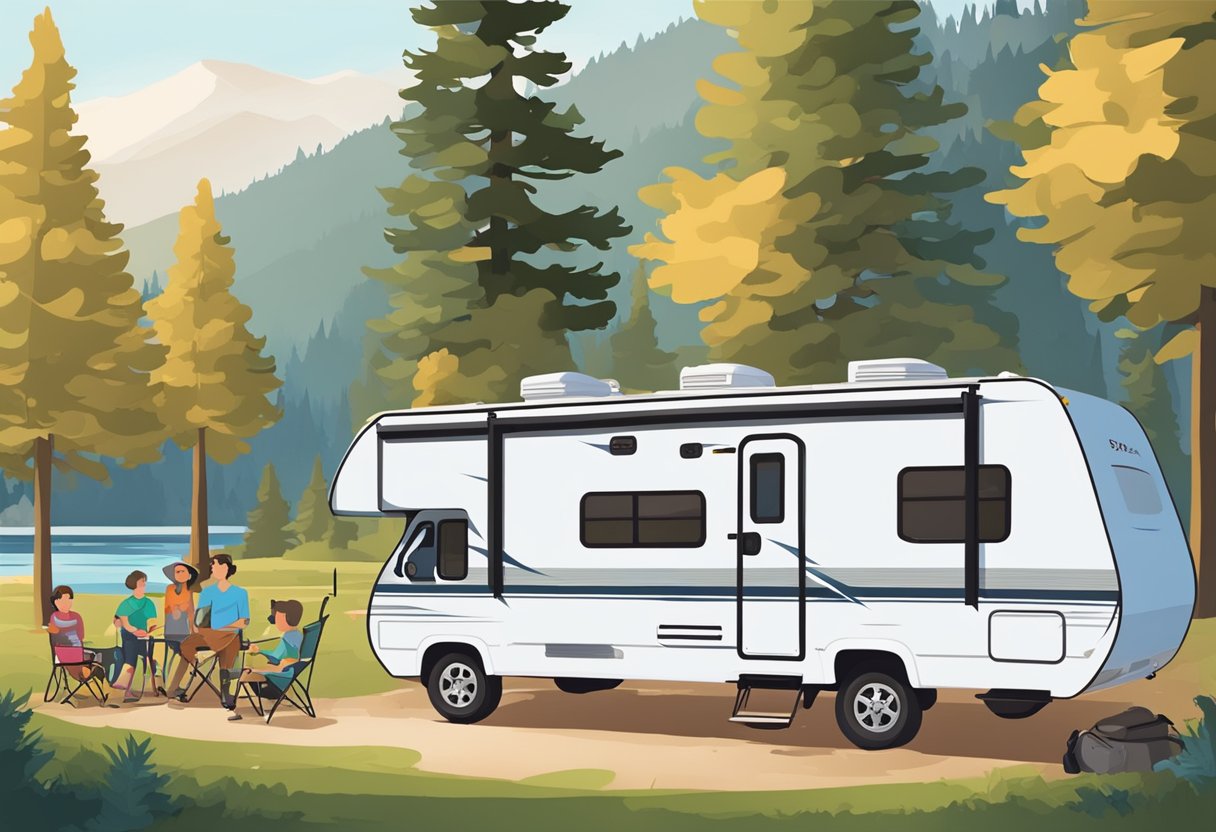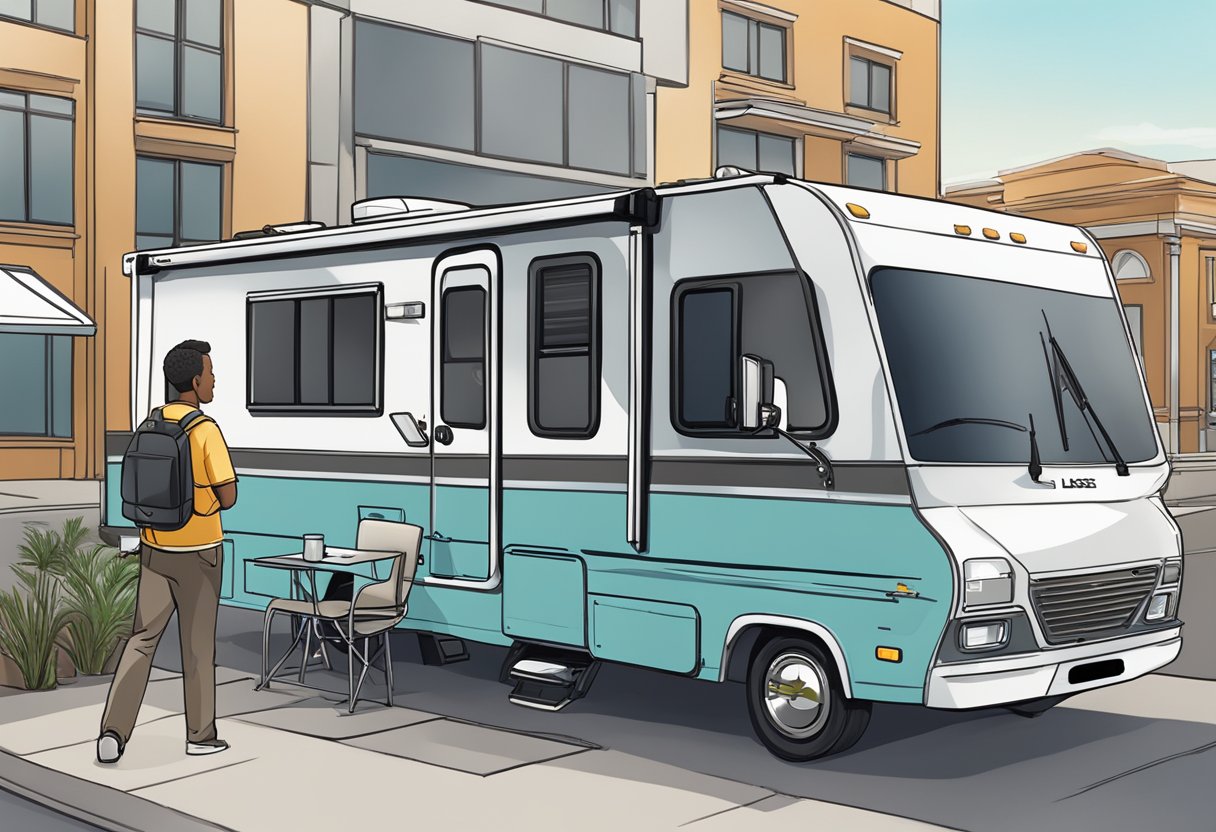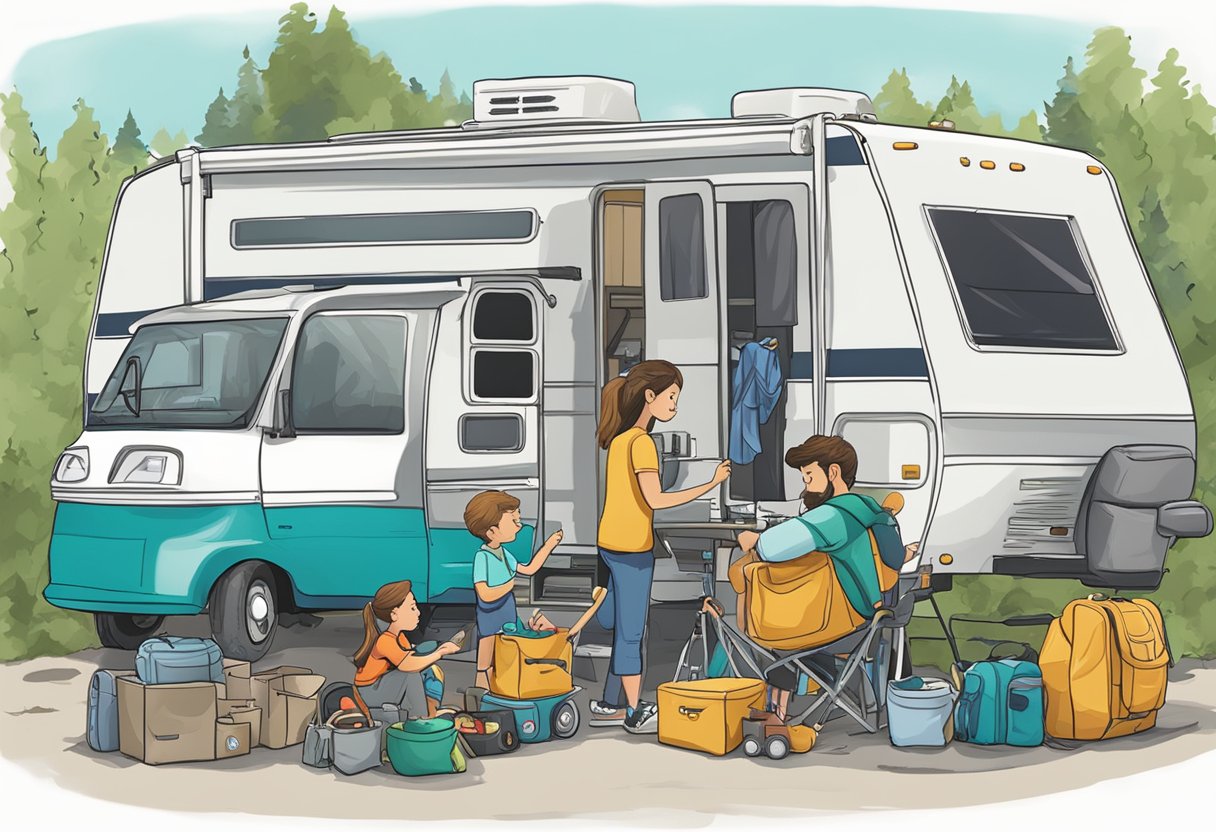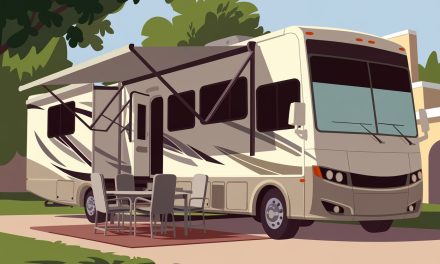Dreaming of hitting the open road in an RV without the commitment of buying one? You might wonder if leasing an RV like a car is possible. Unlike cars, traditional long-term leases for RVs generally aren’t available in the same way you’d lease a vehicle.
Would you like to save this article?
While you can’t typically lease an RV in the traditional sense, there are alternatives worth exploring.
Many companies offer extended RV rentals that can last months or even up to a year. These long-term rental arrangements provide the flexibility of using an RV for an extended period without the responsibilities of ownership.
Some RV owners also work with rental companies where you could potentially buy a used RV, use it for as long as you need, then arrange for the company to rent it out when you’re finished. This creative solution gives you more options than a traditional lease while still avoiding the full commitment of permanent RV ownership.
What Is RV Renting?
RV renting works somewhat like car leasing but with important differences that affect your financial commitment and usage rights. Let’s explore how it works and what options exist.
Definition and Basic Concepts
RV renting is a financial arrangement where you pay to use an RV for a set period without owning it. You make monthly payments for a term (typically 2-5 years) and return the RV at the end of the term.
The main appeal is getting a newer RV without the huge upfront cost of buying. You’ll typically need good credit to qualify, and most rentals include mileage restrictions and wear-and-tear guidelines.
RVs typically face “massive depreciation,” making leases less common than car leases. Lenders risk losing money early in the lease period due to this steep value drop.
Benefits of Renting an RV
Renting an RV offers several advantages that might make it a better option than buying one outright. Let’s explore why this choice could work well for your travel plans and budget.
Cost-Effectiveness
Renting an RV typically comes with lower monthly payments compared to financing a purchase. This can free up your budget for actual traveling expenses like gas, campsite fees, and activities.
When you rent, you often don’t need to worry about major maintenance costs. Many rental agreements include warranty coverage that handles repairs and regular maintenance needs. This can save you thousands of dollars over the lease term.
You also avoid the hefty down payment that buying requires. Most rentals need only the first month’s payment and a security deposit to get started.
Depreciation becomes the rentals company’s problem, not yours. RVs can lose 20-30% of their value in the first few years, which is a cost you won’t bear as a lessee.
Flexibility in Travel
Renting gives you the freedom to enjoy RV travel without a long-term commitment. Most rental terms range from 1-3 years, perfect if you’re unsure about making RVing a permanent lifestyle.
When your rental ends, you can simply return the RV and walk away. No need to worry about selling it or finding storage when you’re not using it.
If your work requires frequent travel or extended stays in different locations, a rental RV can serve as comfortable, portable housing. This setup often costs less than hotels or short-term apartment rentals.
Some rental programs even allow you to swap for different RV models during your rental term, letting you adapt to changing travel needs or group sizes.
Opportunity to Test Different RV Models
Renting lets you try out RV living before committing to a purchase. You’ll learn firsthand what features matter most to you through daily use.
During your rental period, you can discover which floor plan works best for your needs. Maybe you thought you needed a full kitchen, but realize a simpler setup would give you more living space.
Many agreements include a purchase option when the term ends. If you fall in love with your RV, you can buy it at a predetermined price, often with some payments counting toward the purchase.
If you discover RVing isn’t for you, or you want a completely different model, you can simply turn in your keys when the rental ends. No hassle of trying to sell in a potentially difficult market.
How to Rent an RV
Renting an RV works similarly to leasing a car, though the process has some unique aspects related to recreational vehicles. Finding the right rental option can help you enjoy RV life without the commitment of ownership.
Steps to Find the Perfect Deal
Start by researching companies that offer RV rental programs.
Compare different rental terms and monthly payments. Most RV rentals run from 12 to 60 months, similar to car leases. Look for deals that include maintenance coverage to avoid unexpected repair costs.
Consider the type of RV that fits your needs. Class A motorhomes are luxurious but expensive to rent, while travel trailers or Class C RVs offer more affordable options. Make sure the RV has all the features you need for your intended use.
Don’t forget to check mileage limits. Many RV rentals restrict yearly mileage, with penalties for excess use.
Insurance and Protection Basics
Secure proper insurance coverage for your rented RV. Most companies require comprehensive insurance with specific coverage limits. Shop around for the best rates from insurance providers familiar with RV policies.
Ask about included warranties and protection plans. Some come with manufacturer warranties that cover mechanical issues. Others offer supplemental protection for an additional fee.
Consider roadside assistance plans. Getting stranded in a large RV can be challenging without proper help. Many companies offer roadside services specifically for RVs.
Document the RV’s condition before taking possession. Take photos and note any existing damage to avoid disputes when returning the vehicle. This simple step can save you significant headaches at lease-end.
Factors to Consider When Renting an RV
Renting an RV involves several important decisions that will affect your travel experience and finances. Before signing any agreement, you need to evaluate your specific needs, understand the terms, and plan for the logistics of pickup and return.
Size and Amenities
When choosing an RV, size matters a lot. Think about how many people will be traveling with you and how much space you’ll need to be comfortable. A larger RV offers more living space but can be harder to drive and park.
Consider the amenities that are must-haves for your trips. Do you need a full kitchen? How about a bathroom with a shower? Some RVs come with luxury features like satellite TV and outdoor entertainment systems.
Look at the sleeping arrangements carefully. Make sure there are enough beds for everyone, and they’re comfortable enough for your needs. Many RVs use convertible spaces like dinettes that become beds at night.
Storage is another big factor. You’ll need space for clothes, food, and gear. Check if there’s adequate cabinet space and outside storage compartments for bulky items.
Duration and Mileage Terms
RV rentals typically run from a few months to several years. Shorter terms give you flexibility but often cost more per month. Longer rentals usually offer better monthly rates but commit you for a longer period.
Pay close attention to mileage limits. Most RV rentals include a set number of miles, with charges for going over. This can add up quickly on long road trips! Some companies offer unlimited mileage options for an additional fee.
Consider seasonal pricing changes too. Leasing costs often increase during peak travel seasons like summer and decrease in off-seasons like winter.
Pick-Up and Return Policies
Location matters when renting an RV. Find out where you’ll need to pick up and return the vehicle. Some companies offer delivery to your home for an extra fee.
Check the pick-up process thoroughly. Will someone walk you through how to operate the RV’s systems? This is crucial if you’re new to RVing and need guidance on water, electrical, and waste systems.
Return requirements can be strict. Most companies expect the RV to be returned clean, with empty waste tanks and a full fuel tank. Failing to meet these requirements often results in extra charges.
Pay attention to return time policies. Late returns typically incur penalties, sometimes charged by the hour. Plan your trip with enough buffer time to avoid these fees.
Common Challenges and Solutions
Renting an RV comes with several hurdles that can trip up even experienced travelers. Understanding these issues ahead of time will help you prepare and enjoy your RV experience without unwelcome surprises.
Maintenance Responsibilities
When renting an RV, maintenance responsibilities can be confusing. Unlike car leases, RV rentals often place more maintenance burden on you. Most agreements require you to handle routine maintenance like oil changes, tire rotations, and appliance upkeep.
Ask these questions before signing: Who pays for repairs? What happens if the refrigerator breaks? Is there a maintenance schedule you must follow?
Some companies offer maintenance packages for an additional fee. These can be worth considering, especially for mechanical systems you’re not familiar with. Remember that neglecting maintenance might void warranty protections or result in penalties.
Document the condition of the RV thoroughly before signing. Take dated photos and note any existing damage to avoid disputes later. This simple step can save you thousands when returning the RV.
Unexpected Costs
Renting an RV often brings surprise expenses that weren’t in your budget. Mileage limits are a common shock – most leases allow only 10,000-15,000 miles annually, with overage fees of $0.25-$0.50 per mile.
Insurance costs can be higher than expected too. RV insurance is typically more expensive than car insurance, and agreements usually require comprehensive coverage.
Other hidden fees to watch for:
- Storage fees when not using the RV
- Cleaning charges if returned without proper cleaning
- Generator usage fees based on hours used
- Winter preparation costs in colder climates
Fuel efficiency will impact your budget significantly. Most RVs get only 6-12 miles per gallon, making long trips costlier than anticipated. Ask about all possible fees upfront and get everything in writing before signing.
Cancellation and Early Termination
Life happens, and sometimes you need to end your RV rental early. Unfortunately, this can be expensive. Most RV agreements include stiff penalties for early termination – often thousands of dollars.
Typical early termination fees include:
- Remaining payments (sometimes in full)
- Vehicle preparation and remarketing costs
- Administrative fees
- Depreciation charges
Some agreement offer cancellation options for specific circumstances like health problems or job relocations, but these usually require documentation. Read the fine print carefully and negotiate cancellation terms before signing.
Consider RV-swapping websites if you need to exit early. These platforms help you find someone to take over your lease, potentially saving you from hefty termination fees. However, you’ll still need the leasing company’s approval for any transfer.
To protect yourself, ask about a short-term lease with renewal options instead of committing to several years upfront.
Alternatives to Renting an RV
Buying a Pre-Owned RV
Purchasing a used RV can be much more economical than buying new. Pre-owned RVs have already experienced their steepest depreciation, saving you thousands of dollars upfront.
Many dealers offer financing options that create monthly payments similar to what a lease might cost, but you’ll build equity with each payment. Some RV dealers even have programs where you can buy a used RV and leave it with them to rent out when you’re not using it.
This arrangement helps offset your ownership costs while giving you the benefits of ownership. You can also sell your RV when you’re done with it, potentially recouping a significant portion of your investment depending on how well you maintain it.
RV Sharing Platforms
Peer-to-peer RV sharing platforms like Outdoorsy and RVezy work like Airbnb for recreational vehicles. These services connect RV owners with people looking to rent, creating a win-win situation for everyone involved.
As a renter, you’ll generally find more unique options and potentially better prices than traditional rental companies. Many owners offer flexible terms for longer rentals, which can be perfect if you’re testing out the RV lifestyle before committing.
These platforms handle the insurance details and provide customer support, making the process straightforward. Some RV owners might even consider rent-to-own arrangements, though these typically cost more than traditional financing in the long run.

